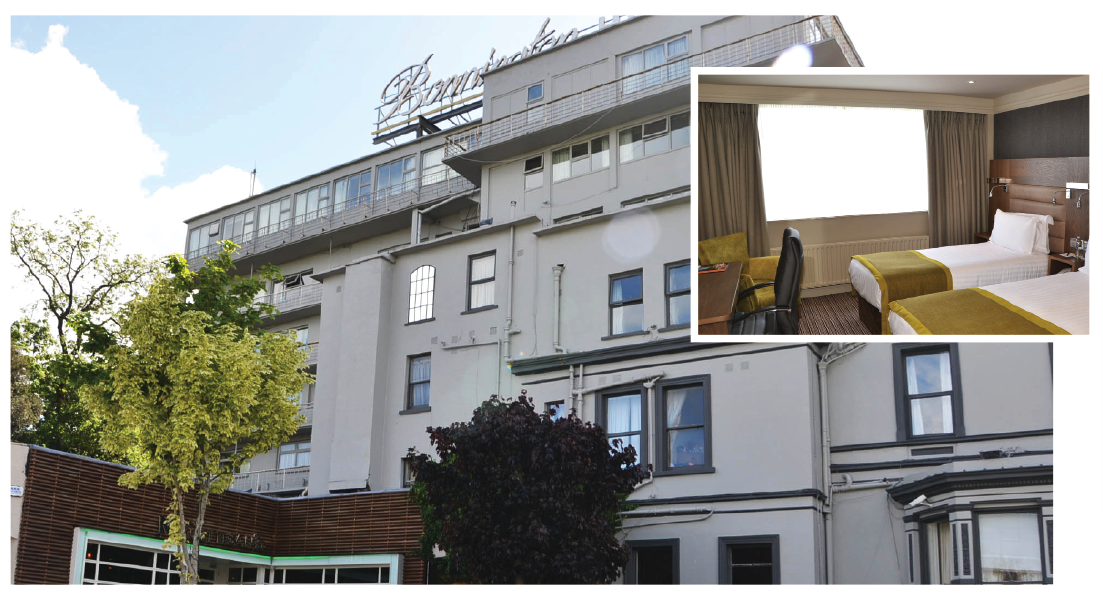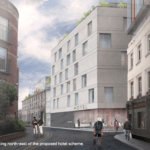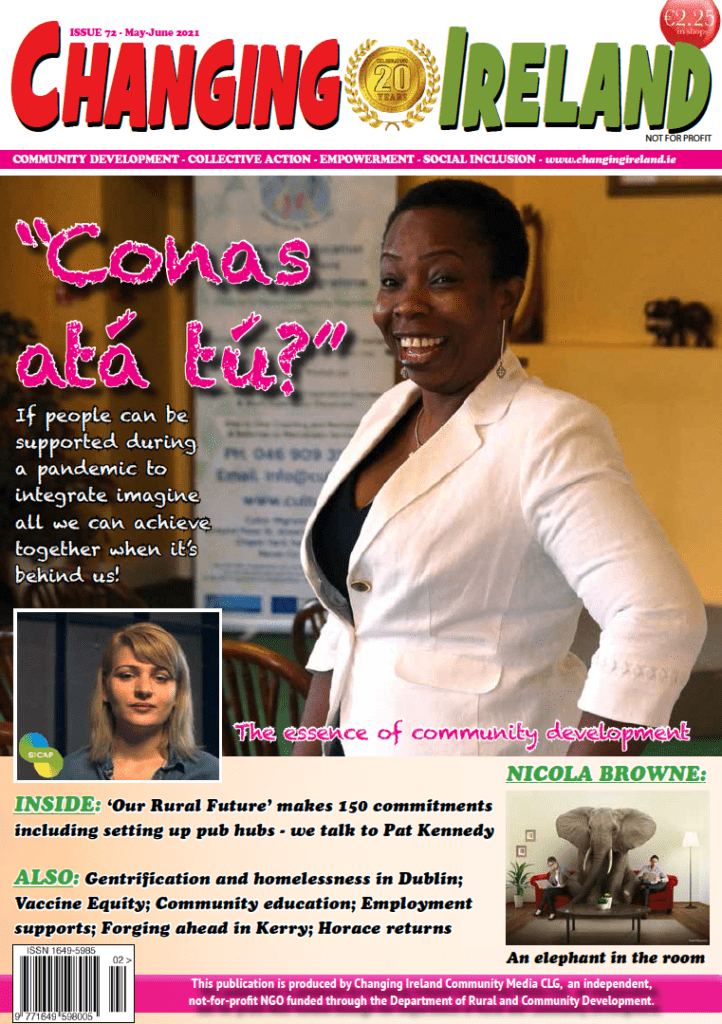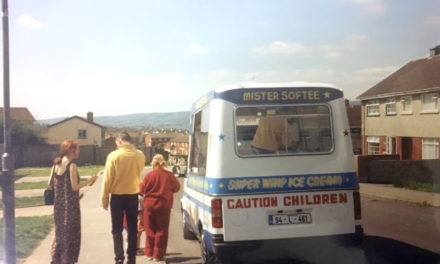Short term transient forms of accommodation blur the lines between housing and hotels.
Student Accommodation is used for holiday letting in the summer and last year, Dublin City Council granted planning permission for some student developments to switch to short term letting year-round, during Covid 19.
“Naturally change is a good thing,” says Rita Fagan of St. Michael’s, Inchicore, “but if it is all about hotels it might not be.”
Companies that develop co-living complexes say they will charge around €1300 a month to rent an en suite bedroom, with access to communal facilities, like kitchens and lounge areas.
That means renting one room in Dublin city centre is set to cost the same as renting out an entire home in many other parts of Ireland.

• Minister Darragh O’Brien.
In November, the Minister for Housing, Fianna Fáil TD, Darragh O’Brien, moved to ban co-living. But despite the ban, there are planning applications already submitted for thousands of those rooms, most in the inner city.
Developers have already applied to build at least 2,770 co-living rooms, says Orla Hegarty, Professor of Architecture at UCD.
On top of that thousands of rooms in high end, student accommodation across the city centre are planned or already built.
Those charge from €900 to €1200 per month for students to rent a room and then the owners rent the apartments as holiday lets in summer. High-profit, transient accommodation developments drive up rents and the price of land, says architect and housing commentator, Mel Reynolds.
The problem is that building co-living and student accommodation is so profitable that it discourages developers from building normal homes.
“Co-living is exciting all right – for developers,” he says.
UNANIMOUS OPPOSITION
Locals in the Liberties area of Dublin almost unanimously oppose the development of any more high-end transient accommodation in the area.
That sentiment is reflected by their local political representatives, who came together on a cross-party basis to oppose plans for a 144-bed hotel and 69 room co-living development in Fumbally Lane.
That proposal followed many similar developments in the area.
PLANNING PERMISSION
In December 2019, councillors from Sinn Féin, the Green Party, the Labour Party, Fianna Fáil and People Before Profit took to the doorsteps to campaign in favour of “real housing” for the area.
People Before Profit councillor Tina MacVeigh said that almost everyone she met was opposed to co-living.
“Everyone thinks that co-living is rubbish – a kitchen on every second floor, a hob in the room and a tiny toilet,” said Green Party Councillor, Michael Pidgeon. “It is taking the low standards from student accommodation and applying it to housing.”
It is wrong, he said, for proponents to portray it as contributing to what they call “an innovative, boutique lifestyle”.
The development at Fumbally Lane was granted planning permission.
This article is part of a 3-part series, as published in Issue 72, Spring 2021, of ‘Changing Ireland.
READ MORE: DUBLIN: Land values breed fear as locals displaced by inner city gentrification – By Laoise Neylon
READ MORE: Profiteering from luxury apartments is beating the life out of communities – By Laoise Neylon
DOWNLOAD & READ THE FULL MAGAZINE (PDF): SPRING 2021 EDITION








